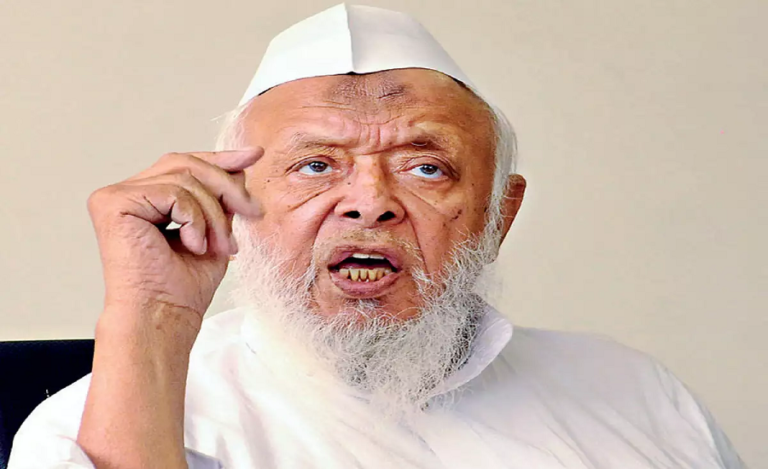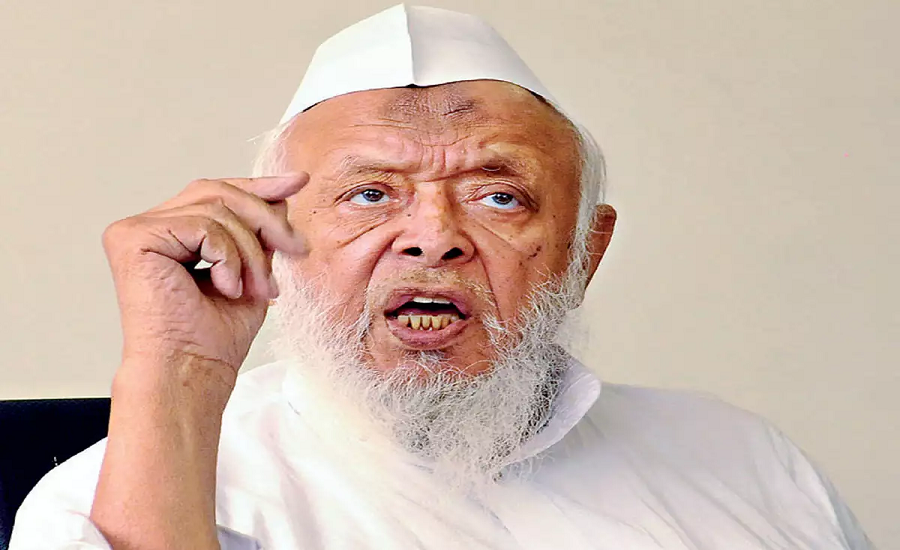
A petition filed by President of Jamiat Ulema-i-Hind Maulana Arshad Madani states that the Places of Worship Act strengthens the basic structure of the Constitution of India, as mentioned in the Babri Masjid case judgment (Paragraph 99, page 250).
Team Clarion
NEW DELHI – President of Jamiat Ulema-i-Hind Maulana Arshad Madani has filed an intervention application against a petition challenging constitutional validity of Places of Worship Act 1991. Hearing in the matter is expected after the summer vacation.
While on the one hand the Gyanvapi Masjid case is being heard in the Varanasi District Court, more than one such petitions have been filed in the Supreme Court on the other. All of these ask the apex court to declare the Places of Worship Act unconstitutional.
In 2020, two petitions were filed in the Supreme Court seeking annulment of the said Act. The petition (Civil Writ Petition number 1246/2020) was filed by a man named Ashwini Kumar Upadhyay (Advocate).To oppose the petition, the Jamiat has filed an intervention application in the Supreme Court through Advocate-on-Record Ejaz Maqbool, which is expected to be heard after the summer recess.
On the direction of the President of Jamiat Ulama-i-Hind, it has been written in the intervening petition that the Jamiat was the main party in the Babri Masjid Ram Janmabhoomi property dispute case in which Section 4 of Places of Worship Act had been accepted and the constitutional status of this law has also been recognised by the Supreme Court. Therefore, by challenging this law, an attempt is being made to spoil the peace of the country once again.
The petition further states that the implementation of the Places of Worship Act 1991 had two purposes, one, to prevent conversion of any religious place into another religious place, two, to keep the places of worship in the same condition as they were in 1947. The court had admitted both purposes in Babri Masjid-Ram Janmabhoomi case.
The petition states that the Places of Worship Act strengthens the basic structure of the Constitution of India, as mentioned in the Babri Masjid case judgment (Paragraph 99, page 250). It is the responsibility of a secular country to protect this law and to protect the places of worship of all religions.
The petition further said that in the Babri Masjid case judgment, a five-judge constitutional bench has made a detailed analysis of the Places of Worship Act, according to which the law strengthens the foundations of the Constitution of India as well as protects it. Also, section 4 of this law prohibits the conversion of places of worship and by enacting this law, the government has taken a constitutional responsibility to protect the places of worship of people of all religions. And the purpose of making this law is to strengthen the foundations of secularism.
